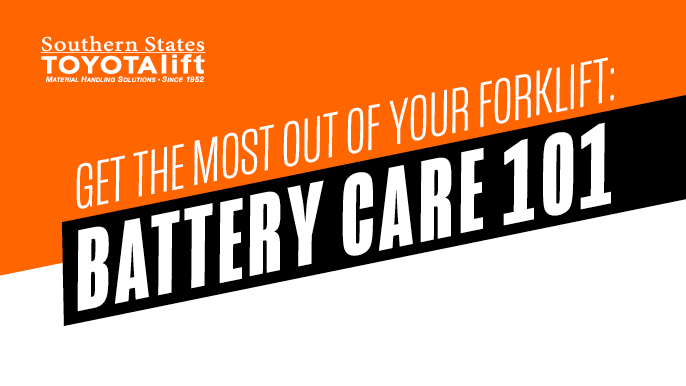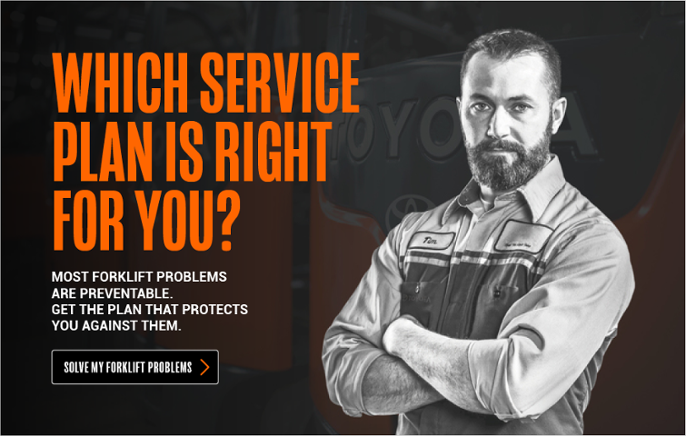Get the Most Out of Your Forklift: Battery Care 101
by Jason Johnson, on Apr 17, 2021 11:15:00 AM

If you’ve recently added electric forklifts to your fleet, you know how many changes they require to your business operations and maintenance plan. Charging cycles, charges, battery maintenance, and everything in between can be overwhelming - but it doesn’t have to be.
We care about enabling your forklift success. That’s why our team of dedicated material handling experts have compiled this introductory guide to proper care for electric forklift batteries. Protect your investment to maximize your batteries’ effective lifespan and the efficiency of your forklift. Keep these basic best practices for proper battery care in mind to get the most out of your new equipment.
Forklift Battery Charging
Be sure to follow guidelines from your forklift battery’s manufacturer. The charging cycles available for your battery are limited, whether it’s a traditional lead-acid unit, a maintenance-free AGM, or a lithium-ion. Typically, you should recharge a battery after an 8-hour shift or when it has discharged more than 30%. Unless your system is configured for opportunity charging, don’t cut a charging cycle short, as this can severely reduce the battery’s effective lifespan.
Forklift Battery Maintenance
Lead acid batteries require regular additions of pure or distilled water. Watering your forklift batteries helps to maintain proper electrolyte levels and should be checked every five cycles. If the plastic battery element can be seen in several cells, the fluid should be topped off. Watering should always take place after the battery has been charged to avoid diluting electrolyte levels. This process can be simplified with the right watering system and expert training for your staff.
Handling Forklift Batteries
Make sure your employees are protected when handling and moving forklift batteries. The acid present in lead-acid batteries can cause burns and serious harm to skin and eyes. Your workspace will need eyewash and handwashing stations near battery storage and charging areas. Your operators should also wear personal protective equipment (PPE) when transporting batteries. Specialized equipment, such as an electric pallet jack with a transfer carriage, should be used by a team to transport batteries around your facility.
Maintaining your electric forklift batteries is essential for optimizing the performance of your forklift fleet. Need maintenance assistance with your fleet? Contact us today to discuss the Southern States Toyotalift full maintenance plan. Our professional technicians will work with you to keep your fleet up and running at top capacity.
DOWNLOAD our T.I.P.s (Toyota Information Partners)
for proper battery care.
Further Reading:
4 Questions to Ask to Get the Full Value of Full Maintenance
Forklift Safety Checklist
Why Are Forklift Pre-Shift Inspections Important?








